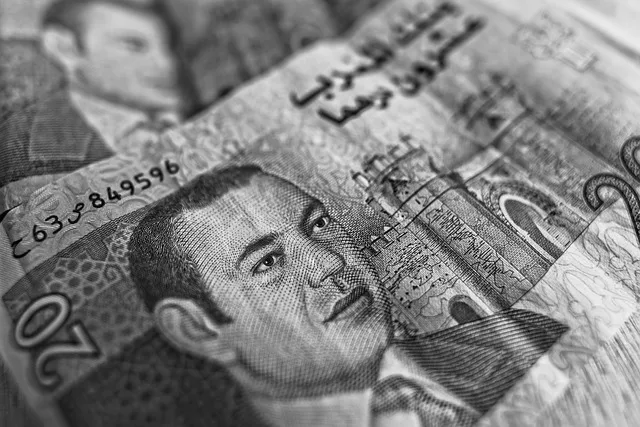All You Need to Know About Money and Currency in Morocco
Moroccan currency, exchange, prices, and more information of interest. on this page, we explain basic economic aspects such as which is the currency of Morocco, how much the Moroccan dirham has changed, what hours the banks have, and much more.
Quick Facts about the Moroccan Dirham (MAD)
- Name Moroccan Dirham.
- Year of introduction: 1897.
- Coins: 1, 2, 5, and 10 MAD.
- Banknotes: 10, 20, 50, 100, 200 Moroccan Dirham
- Subunit: 5, 10, 20, 50 centimes / santimat (cents)
- Abbreviation: DM
- Currency Code: MAD
The currency of Morocco: the Moroccan dirham
If you are considering when to visit Morocco, everything will depend on the region you want to visit. In general, spring is the best time to visit the country, when the trees are in bloom and the landscapes show all their beauty.
The currency of Morocco is the Moroccan dirham, whose ISO code is MAD (Morrocan dirham). As with dollars, euros, and many other currencies, it is subdivided into 100 cents. The bills that you will have to handle are 20, 50, 100, and 200 MAD. As for the coins, there are 5, 10, 20, and 50 cents and 1, 2, 5, and 10 MAD.
The exchange of the Moroccan currency is not free. Its price is included in a ‘simplified basket’ made up of the currencies of the main trading partners, the euro and the dollar. Thus, the average exchange rate is 1 dirham = 0.09 euro / 1 euro = 9 dirham.
Exchange offices and banks in Morocco
You can change money in Morocco at the country’s banks, which are present in all cities. You can also do it at the exchange offices. Banks are open from Monday to Friday except for holidays and you cannot exchange currency and traveler’s checks there, as well as use credit cards. In general, it is a quick and easy operation, and exchange rates vary little from one entity to another. One of the best entities is probably La Banque Marocaine du Commerce Extérieur (BMCE). Advances with credit cards and ATMs carry a charge of approximately 1.5%.
On the other hand, you will find exchange offices in all cities, airports, borders and seaports. There are also hotels that have currency exchange and traveler's checks.
To find out how many Moroccan dirhams an amount equals in your local currency, you can use the currency converter on this page ( The World’s Trusted Currency Authority ). For information on exchange regulations and policy, see the page of the Office des Changes (Moroccan Exchange Agency) and the Central Bank of Morocco.
ATMs in Morocco
If instead of making a change to the Moroccan currency you prefer to withdraw it directly in that currency from an ATM, you can do it in any city and with a Visa or MasterCard. In any case, here are two tips that you should keep in mind:
It is best to withdraw money directly from the bank during their opening hours to avoid potential credit card problems.
For each cash withdrawal from ATMs, a variable rate will be applied to your account. With this, we advise you to inform yourself before making them and avoid making many cash withdrawals from the ATMs.
Credit cards
They are accepted by most hotels of a certain standard, as well as in some restaurants and shops, but rarely at gas stations. At present, many credit card scams are being carried out in all parts of the world, so we advise you to always accompany the merchant with the card until the payment is made. The commissions are very high for retailers, so many do not accept or excuse themselves saying that their POS is broken.
Tipping in Morocco
In the most exclusive restaurants, customers are expected to leave a tip for the service provided, the usual being between 10 and 15% of the bill. In the more modest establishments, a dirham or two will suffice. Tipping is common in many services in Morocco, from tour guides to valet parking, through toilet cleaners in establishments, and many others.





.jpg)